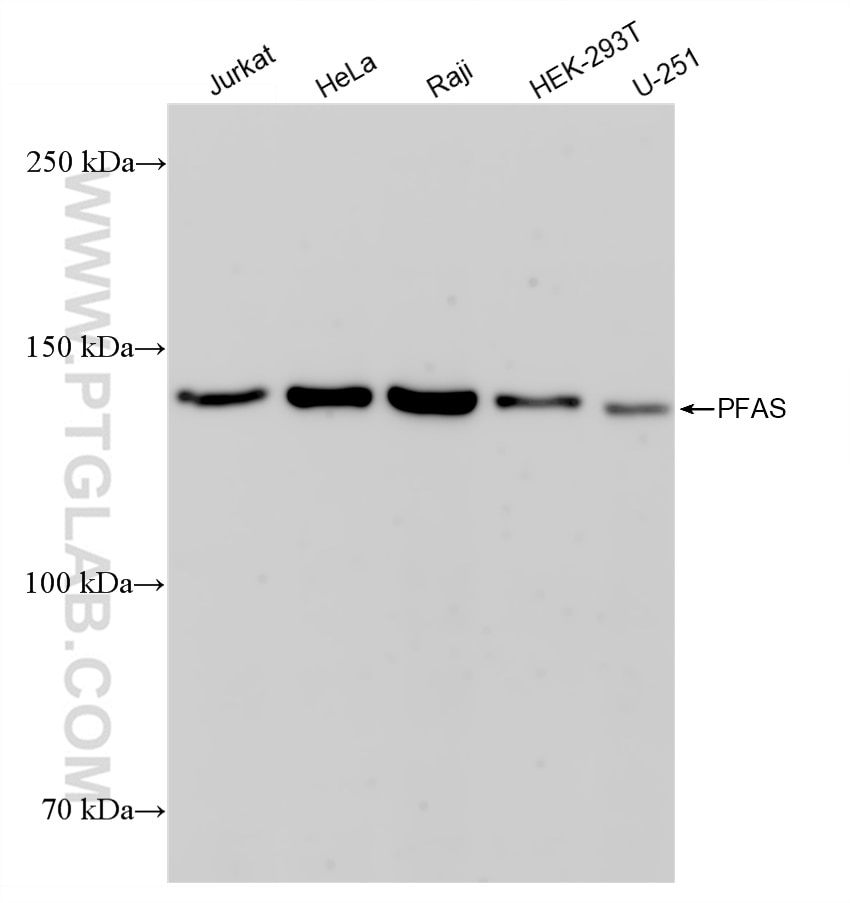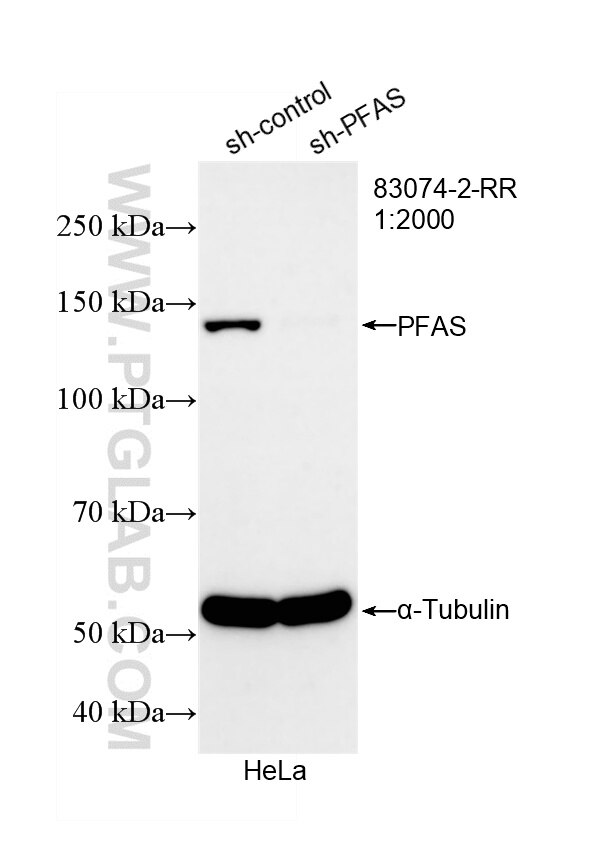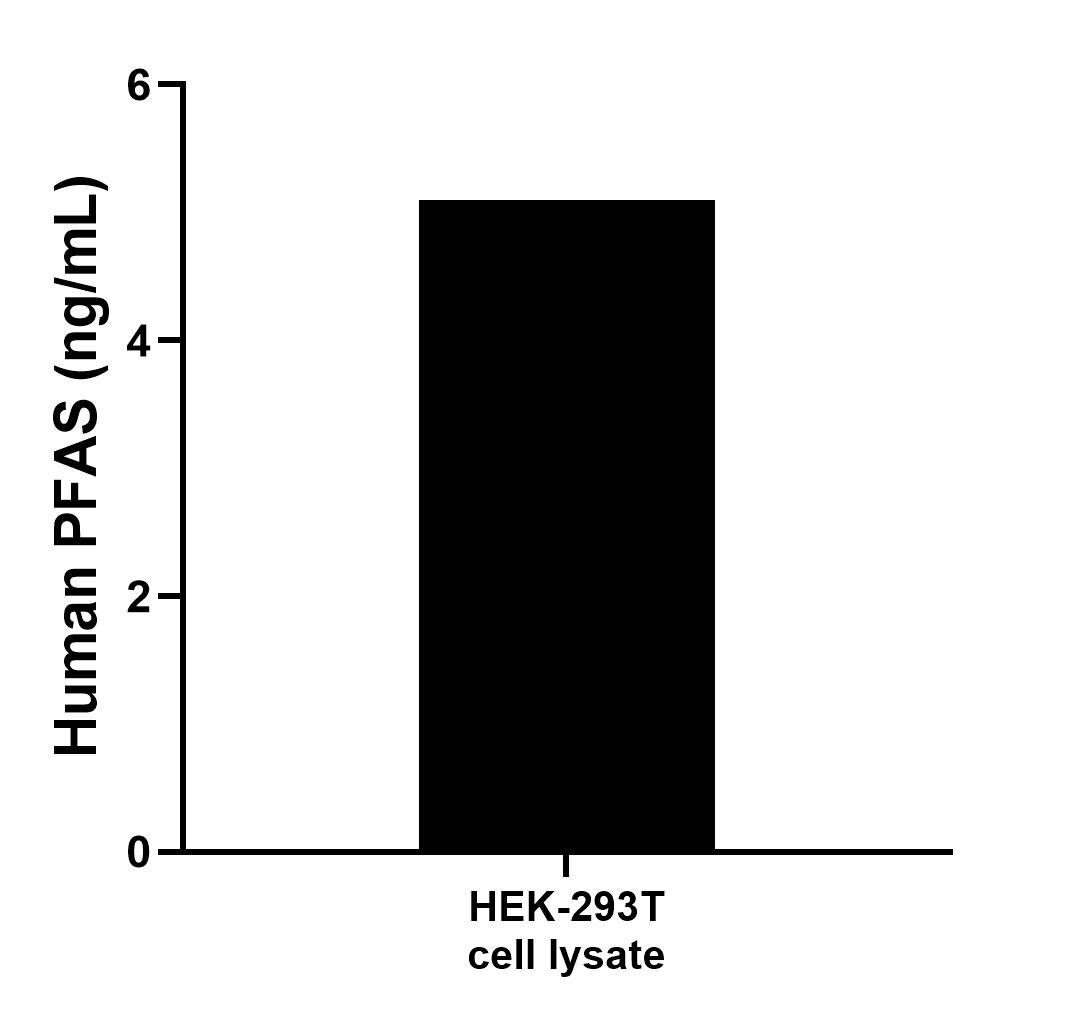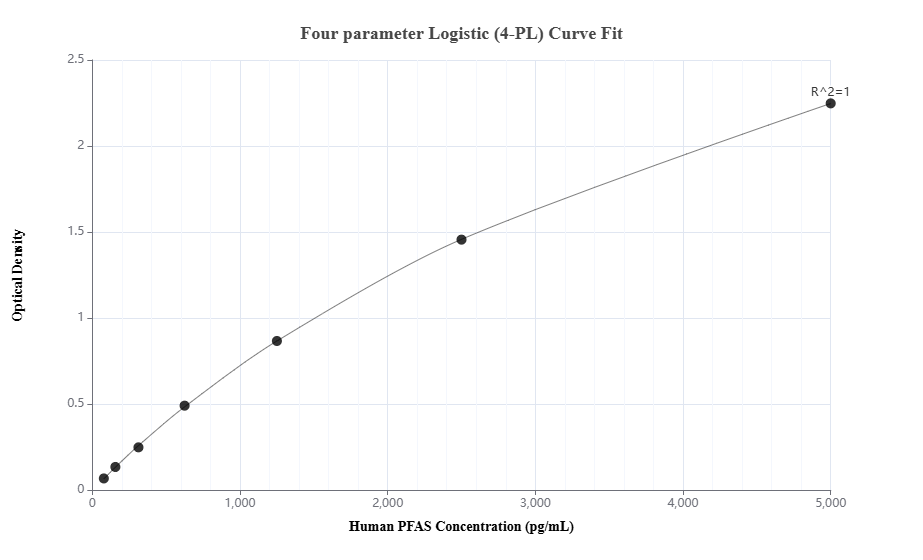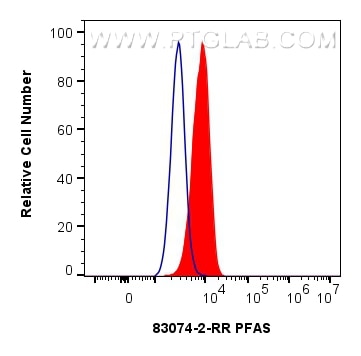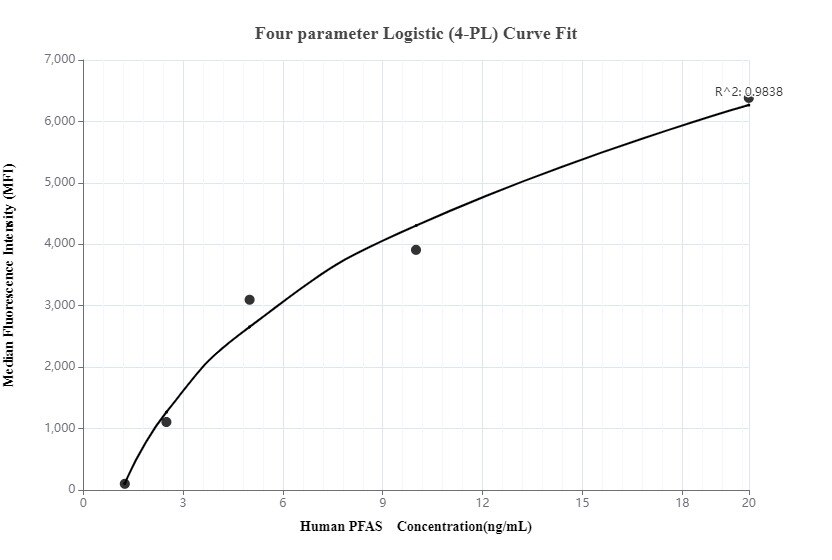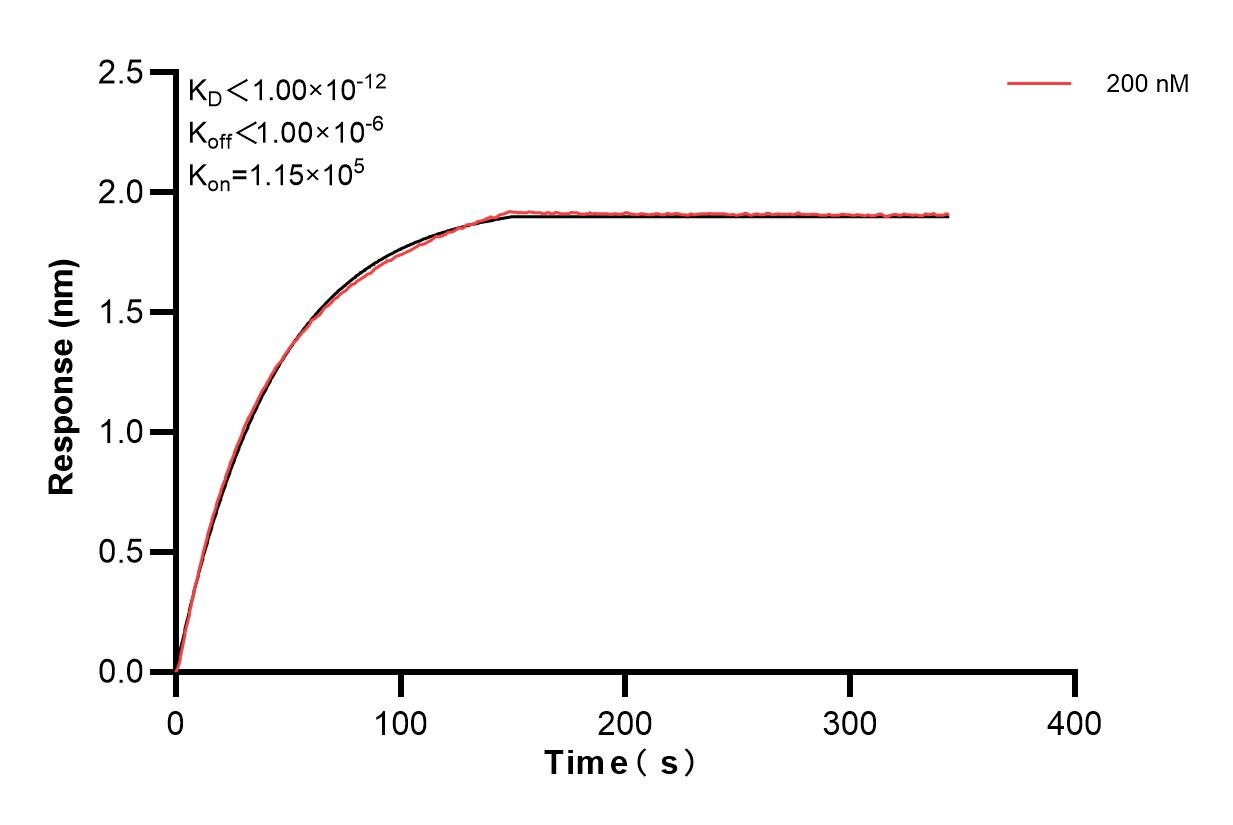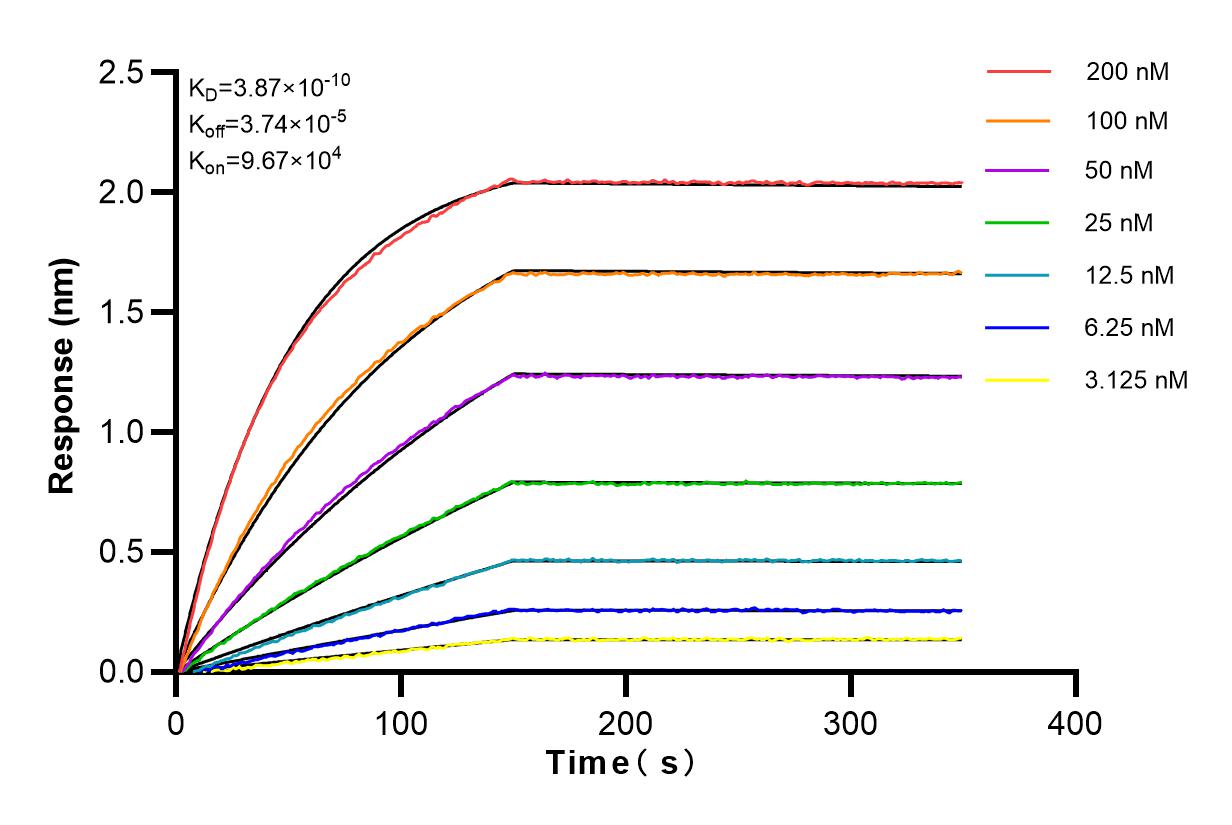Product Information
83074-2-PBS targets PFAS as part of a matched antibody pair:
MP00064-1: 83074-2-PBS capture and 83074-1-PBS detection (validated in Cytometric bead array, Sandwich ELISA)
Unconjugated rabbit recombinant monoclonal antibody in PBS only (BSA and azide free) storage buffer at a concentration of 1 mg/mL, ready for conjugation. Created using Proteintech’s proprietary in-house recombinant technology. Recombinant production enables unrivalled batch-to-batch consistency, easy scale-up, and future security of supply.
This conjugation ready format makes antibodies ideal for use in many applications including: ELISAs, multiplex assays requiring matched pairs, mass cytometry, and multiplex imaging applications.Antibody use should be optimized by the end user for each application and assay.
| Tested Reactivity | human |
| Host / Isotype | Rabbit / IgG |
| Class | Recombinant |
| Type | Antibody |
| Immunogen |
CatNo: Ag20162 Product name: Recombinant human PFAS protein Source: e coli.-derived, PGEX-4T Tag: GST Domain: 989-1338 aa of BC167158 Sequence: MVRVSVNGAVVLEEPVGELRALWEETSFQLDRLQAEPRCVAEEERGLRERMGPSYCLPPTFPKASVPREPGGPSPRVAILREEGSNGDREMADAFHLAGFEVWDVTMQDLCSGAIGLDTFRGVAFVGGFSYADVLGSAKGWAAAVTFHPRAGAELRRFRKRPDTFSLGVCNGCQLLALLGWVGGDPNEDAAEMGPDSQPARPGLLLRHNLSGRYESRWASVRVGPGPALMLRGMEGAVLPVWSAHGEGYVAFSSPELQAQIEARGLAPLHWADDDGNPTEQYPLNPNGSPGGVAGICSCDGRHLAVMPHPERAVRPWQWAWRPPPFDTLTTSPWLQLSINARNWTLEGSC Predict reactive species |
| Full Name | phosphoribosylformylglycinamidine synthase |
| Calculated Molecular Weight | 1338 aa, 145 kDa |
| Observed Molecular Weight | 140-150 kDa |
| GenBank Accession Number | BC167158 |
| Gene Symbol | PFAS |
| Gene ID (NCBI) | 5198 |
| Conjugate | Unconjugated |
| Form | Liquid |
| Purification Method | Protein A purfication |
| UNIPROT ID | O15067 |
| Storage Buffer | PBS only, pH 7.3. |
| Storage Conditions | Store at -80°C. |
Background Information
Phosphoribosylformylglycinamidine synthase (PFAS) is a highly conserved enzyme that catalyzes the fourth step of de novo purine synthesis. It catalyzes the ATP-dependent conversion of formylglycinamide ribonucleotide (FGAR) and glutamine to yield formylglycinamidine ribonucleotide (FGAM) and glutamate.

